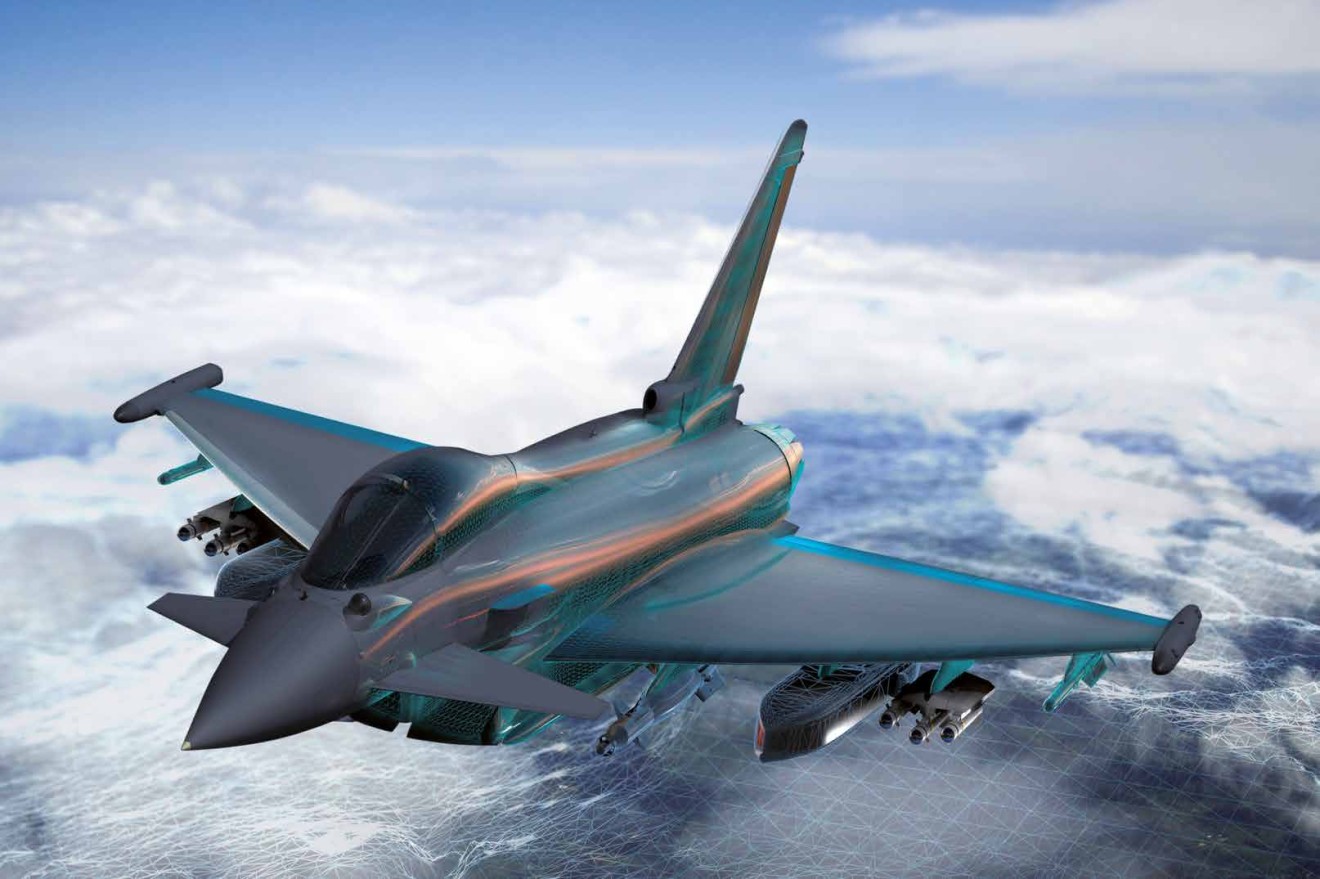The Eurofighter Typhoon has one of the world’s most advanced Electronic Warfare (EW) systems. We talk to Mark Hewer, Leonardo’s Vice president Integrated Mission Solutions, who has worked in Electronic Warfare for 17 years, about how the Typhoon’s EW system allows the aircraft to operate stealthily, evading threats and preventing engagement.
How Does Digital Stealth Work?
There are two main elements to being able to act stealthily: being aware of your environment and being hard to observe. The Typhoon’s EW suite covers both. Firstly, the system provides full awareness of surrounding threats so the pilot knows where they are and what modes they’re using. This picture is enhanced further by pulling in data from other operators in the theatre, networking via the Typhoon’s EW system.
With an up-to-the-moment, accurate and comprehensive picture of the environment, a Typhoon pilot can make sure they don’t even come within range of potentially-dangerous radar.
However, staying away from threats isn’t always possible, so the second core element of stealth is to make yourself hard to see. Here, the Typhoon EW suite employs a range of electronic countermeasures that allows the aircraft to digitally hide its signature, becoming invisible to radar, or to digitally create a complex and confusing picture (noise) for a threat operator, denying them a clean targeting opportunity and preventing them from launching a missile in the first place.
Digital Means Adaptable
Importantly, the Typhoon’s advanced, reprogrammable EW suite allows the aircraft to react to a constantly-changing threat environment in ways that physical stealth cannot.
Consider today’s threats. The latest surface-to-air missile systems are having their hardware regularly upgraded, are being networked and can change their behaviour almost instantaneously via software-reprogramming. In short, they are constantly evolving, creating a dynamic and challenging threat environment. This means that the advantage of aircraft which use traditional physical stealth technology, which is designed to make the aircraft hard-to-observe by threat radar systems, is eroding. Counter-stealth techniques are on the rise and have been successfully employed as far back as 1993.
This vulnerability against high-end threats with counter-stealth techniques is difficult to address because the basic elements of physical stealth (an aircraft’s skin & surface treatments, internal structure, and configuration) cannot easily be changed. However, in contrast, the Typhoon’s EW systems, which are readily re-programmable, can evolve digitally to maintain the aircraft’s combat advantage even as threats change around it.
The secret to this advantage is ‘mission data’, a term which sounds relatively benign but is critical to an aircraft’s EW performance and often life-saving. Mission data is the threat intelligence that allows the Typhoon’s sensors to recognise a threat and use the appropriate electronic countermeasure or evasion technique to keep the Typhoon safely out of harm’s way. For some aircraft, mission data is controlled by foreign nations or platform manufacturers, meaning that updates can be months, even years apart.
With Typhoon, which has an open, reprogrammable system which can be updated by the operator, a new threat which is reported as ‘unknown’ during today’s mission can be programmed into the system in hours, meaning that the threat will be identified and dealt with during the very next mission.
Leonardo provide full training to sovereign nations in the programming of Typhoon and development of tactics and countermeasures (optional) so they are able to capitalise on the equipment’s capability rapidly and effectively.
